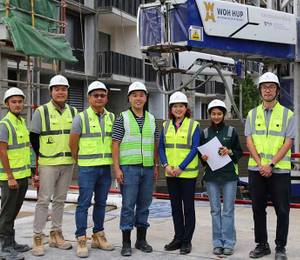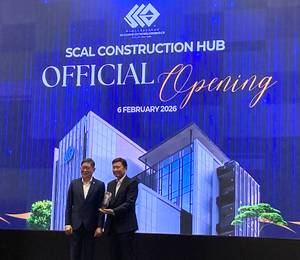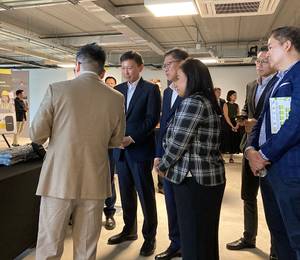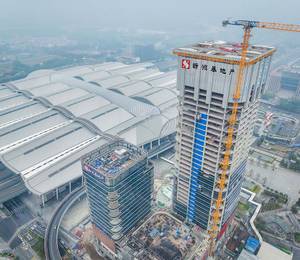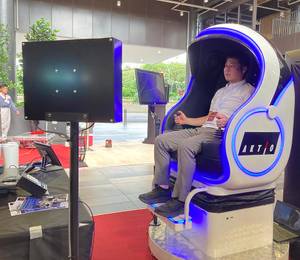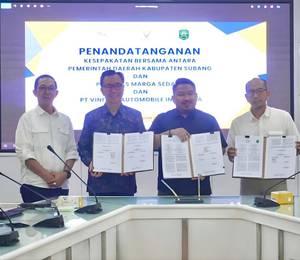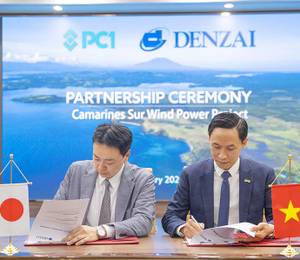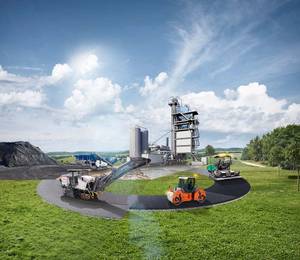As an environmental specialist and hydrologist, Anuva Bhowmick’s main goal is to ensure that the proposed projects in which she is involved will be environmentally acceptable. Some of her tasks include assessing and monitoring environmental impact, preparing environmental management plans, conducting studies and providing advice on the management of water and water resource issues.
“The part that fascinates me most about my role is that I’ve got the opportunity to enrich my experience by solving problems, while gathering new ideas in every phase of a project - from feasibility to operations,” Anuva shares.
“In addition, through my professional responsibilities, I get the chance to communicate with people from all walks of life.”
Anuva’s aspiration to become an engineer goes way back to her school days. “In sixth grade, all students were asked to write an essay about their aim in life. At that time, most of my classmates, including me, wanted to be a doctor - a role that was thought to be ideal for women. We did not know enough about engineering opportunities then,” she recalls.
“That incident always stuck in my mind, and I think it drove me to choose my profession as an engineer.”
In secondary school, Anuva received more motivation and encouragement from her teachers. “I was very good at mathematics, and my teachers used to tell me that I would become a good engineer one day.”
Her parents and teachers were right in their prediction as, years later, Anuva became an environmental and hydrology expert in her own right. Based in Dhaka, Bangladesh, she is now working for ACE Consultants Ltd, a subsidiary of global design and engineering company SMEC.
Speaking about the construction industry in general, Anuva says, “This is the sector where experts from various fields work together to produce a visible modern engineering wonder. For instance, in a bridge construction project, it requires the participation of surveyors, sociologists, road design engineers, bridge engineers, hydrologists, environmental specialists, economists, telecommunication and signal engineers, and so on.”
Anuva is also pleased to witness the progress of technology in the construction industry, such as “the use of drones in remote and inaccessible areas,” she points out. “As they are fitted with sensors, all the data can be processed and transmitted remotely, which is both cost-effective and time-saving.”
‘Strong determination and perseverance are key’
In some male-dominated industries like construction, support for women remains somewhat limited. “There is still a lack of societal and organisational support on job sites,” Anuva notes, sharing her own experience. “For example, I’ve had to visit job sites without proper transportation.”
Being the problem solver that she is, Anuva decided to follow procedure and bring up the issue with her supervisor. “My (male) superior and several of my colleagues supported me.”
“I don't think it’s about gender,” she says. “It’s more about personal thoughts, comprehension and self-education.”
Anuva firmly believes that it is important for more and more women to join the construction industry. “This will change the norm and more women will be accepted into the industry.”
She adds that if women motivate one another, there will be greater interest in giving the industry a chance, and in turn “there will be increased work opportunities for women.”
“On top of that, many policies are now being developed to promote gender equality in this sector, which aim to empower women. Therefore, this is the time to join the industry,” she encourages.
To all aspiring female engineers, Anuva advises that “starting out in any field is difficult for women, particularly in the construction industry, but strong determination and perseverance are key to achieve the satisfaction of your accomplishment.”
Photos courtesy of Anuva Bhowmick

